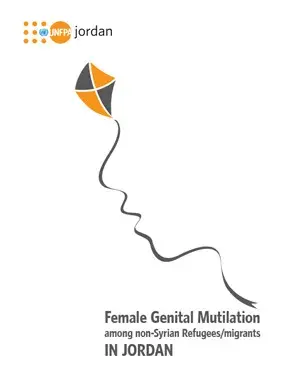This report presents findings from a situational analysis on Female Genital Mutilation (FGM) in Jordan among non-Syrian refugees/migrants, especially Sudanese and Somali communities, providing a case study for possible dynamics of FGM and migration of communities from high to low prevalence countries.
Anecdotal evidence and media reports suggest that FGM practice in Jordan is very low and highly localized. However, the results of this analysis show that FGM is still being practiced among Sudanese and Somali refugees/migrants in Jordan and is subjected to different positive and negative scenarios influencing its patterns. The report aims to identify the current FGM practice in Jordan,, evaluate the unmet needs and flag the gaps, challenges, and opportunities existing regarding GBV programming including for FGM, and finally, to provide recommendations and way forward for FGM programming as well as GBV related service provision targeting non-Syrian refugees in Jordan/migrants. The report uses data collected through Focus group discussions (FGDs) with the community, an online survey for organizations, and a review of relevant literature.
Findings of the report show that Sudanese and Somali women and girls can access various GBV related services both for prevention (e.g. awareness, raising, education and public campaigning) and response (e.g. psychosocial support, cash assistance, shelter and referral) provided by a multitude of actors ranging from small grass-root organizations to governmental entities like the Family Protection Department (FPD) and public hospitals.


